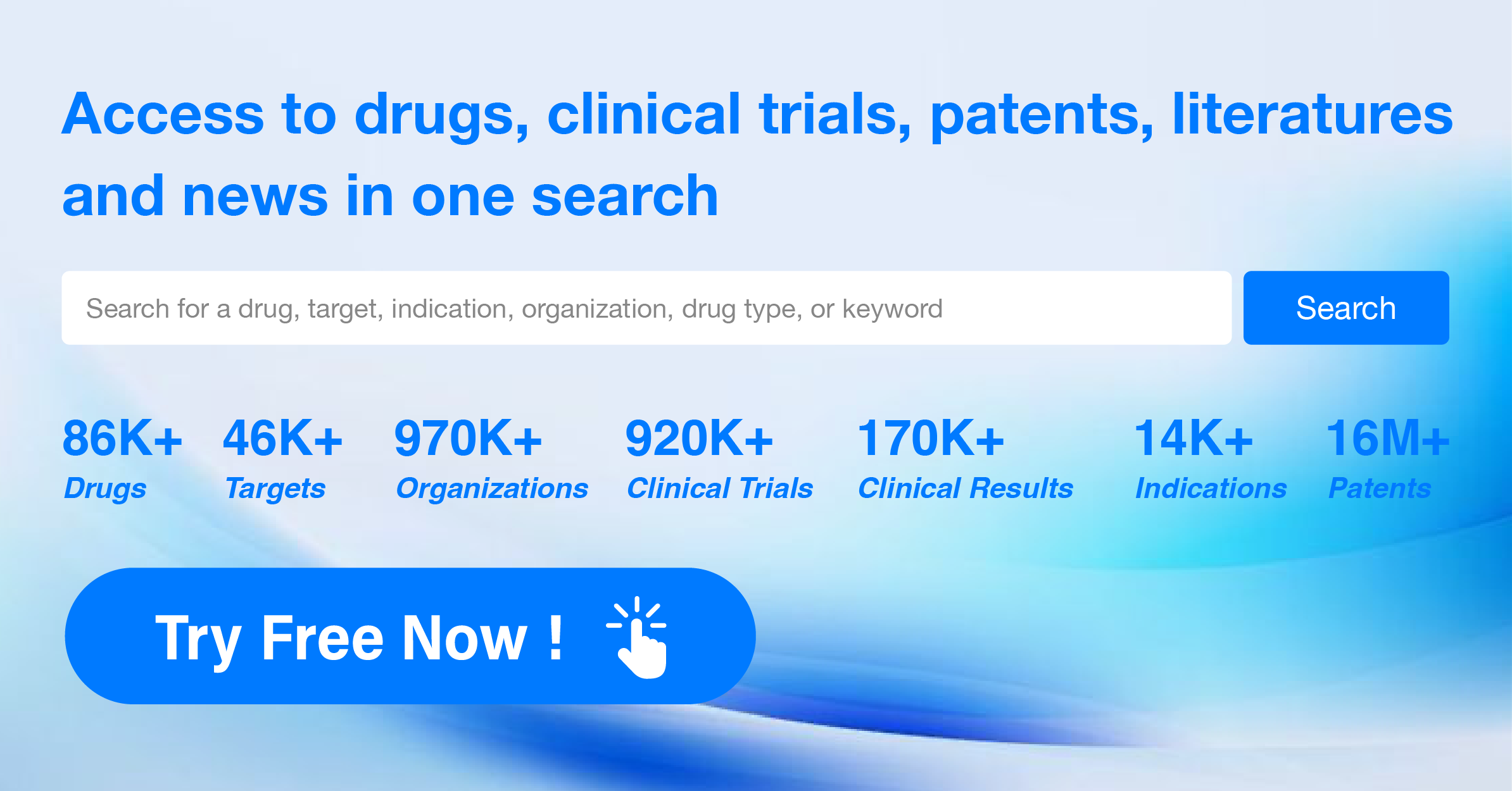Pharma Frontiers: Daily Digest of Global Pharmaceutical News - Jun 4
1.Roche's Oral Highly Selective PI3Kα Inhibitor Inavolisib Submitted for Marketing Approval in China
On June 3rd, the CDE website showed that Roche's PI3Kα inhibitor Inavolisib (GDC-0077) has been submitted for marketing approval in China. It is intended for use in combination with palbociclib and fulvestrant for the treatment of adult patients with locally advanced or metastatic breast cancer who have a PIK3CA mutation, are hormone receptor-positive (HR+), and human epidermal growth factor receptor 2-negative (HER2-), and have experienced a recurrence within 12 months after adjuvant endocrine therapy or after completing such therapy. Recently, Roche also submitted a marketing application for this drug to the FDA. In December 2023, Roche presented the results of the Phase III INAVO120 trial of Inavolisib for the treatment of breast cancer at the San Antonio Breast Cancer Symposium (SABCS). This study is a randomized, double-blind, placebo-controlled clinical trial (n=325) that evaluated the efficacy and safety of Inavolisib combined with palbociclib and fulvestrant compared to placebo combined with palbociclib and fulvestrant in adult patients with PIK3CA-mutant HR+/HER2- locally advanced or metastatic breast cancer. The primary endpoint of the study was progression-free survival (PFS). The results showed a statistically and clinically significant extension in median PFS for patients in the Inavolisib group compared to the placebo group (15.0 vs. 7.3 months, HR=0.43, P<0.0001). Overall survival (OS) data are still immature, but a significant positive trend has been observed (NE vs. NE, HR=0.64, P=0.0338), and further follow-up is underway, with anticipation for the next analysis. Approximately 40% of HR+ metastatic breast cancer patients have a PIK3CA gene mutation. This mutation can lead to the alteration of the PI3Kα protein, resulting in uncontrolled tumor growth, disease progression, and resistance to endocrine therapy. Inavolisib is an oral, highly selective PI3Kα inhibitor that demonstrates greater selectivity and potency for PI3Kα compared to other isoforms (PI3Kβ/δ/γ) and can specifically trigger the degradation of mutated PI3Kα protein.
2.AstraZeneca and Daiichi Sankyo Announce Groundbreaking Phase 3 ADC Results
On June 3, AstraZeneca and Daiichi Sankyo reported detailed and positive results from their Phase 3 clinical trial, DESTINY-Breast06, at the American Society of Clinical Oncology (ASCO) Annual Meeting. Data revealed that the antibody-drug conjugate (ADC) Enhertu significantly improved progression-free survival (PFS) in patients with hormone receptor (HR)-positive, HER2-low expression (IHC 1+ or 2+/ISH-) metastatic breast cancer, compared to standard chemotherapy. This improvement was also observed in the overall study population, which included patients with HR-positive, HER2-low, and HER2 ultralow expression (defined as IHC 0 with membrane staining).
The primary analysis of the DESTINY-Breast06 trial showed that in HER2-low expression patients, Enhertu reduced the risk of disease progression or death by 38% (HR=0.62; 95% CI: 0.51-0.74; p<0.0001) compared to chemotherapy, as assessed by Blinded Independent Central Review (BICR). The median PFS in the Enhertu group was 13.2 months, compared to 8.1 months in the chemotherapy group. In the overall study population, Enhertu reduced the risk of disease progression or death by 37%, with a median PFS of 13.2 months versus 8.1 months in the chemotherapy group (HR=0.63; 95% CI: 0.53-0.75; p<0.0001).
Additionally, pre-specified exploratory analysis indicated consistent and clinically significant improvements in PFS for patients with both HER2-low and HER2-ultralow expression. For patients with HER2-ultralow expression, Enhertu reduced the risk of disease progression or death by 22%, with a median PFS of 13.2 months compared to 8.3 months for the chemotherapy group (HR=0.78; 95% CI: 0.50-1.21).
Thirteen cases of complete response were observed in the Enhertu group, including nine patients with HER2-low expression. In the HER2-ultralow expression subgroup, four complete responses were observed in the Enhertu group, while no complete responses were noted in the chemotherapy group.
3.Osimertinib in the Treatment of Unresectable Stage III EGFR-Mutant NSCLC: Phase III Study Results Announced
On June 2, AstraZeneca announced positive results from the Phase III LAURA trial, which demonstrated that Tagrisso (osimertinib) significantly and clinically meaningfully improved progression-free survival (PFS) compared to placebo in patients with unresectable Stage III epidermal growth factor receptor-mutant (EGFRm) non-small cell lung cancer (NSCLC) (characterized by exon 19 deletions or exon 21 L858R mutations) who had previously undergone chemoradiotherapy (CRT). The results showed an 84% reduction in the risk of disease progression or death as assessed by blinded independent central review (BICR), with a hazard ratio (HR) of 0.16, 95% confidence interval (CI) of 0.10-0.24, and p<0.001. The median PFS for patients treated with Tagrisso was 39.1 months, compared to 5.6 months for the placebo group. Notably, clinically meaningful PFS benefits were observed across all pre-specified subgroups, including gender, race, EGFR mutation type, age, smoking history, and prior CRT. Although the overall survival (OS) data were not mature at the time of this analysis, there was a trend toward OS benefit with Tagrisso. The trial will continue to evaluate OS as a secondary endpoint. The safety profile and discontinuation rates due to adverse events (AEs) were consistent with expectations, with no new safety concerns identified. Grade 3 or higher AEs occurred in 35% of patients in the Tagrisso group compared to 12% in the placebo group.
Tagrisso has been approved in over 100 countries, including the United States, European Union, China, and Japan, as a monotherapy for: 1) first-line treatment of patients with locally advanced or metastatic EGFRm NSCLC; 2) treatment of patients with EGFR T790M mutation-positive locally advanced or metastatic NSCLC; and 3) adjuvant treatment of early-stage EGFRm NSCLC. Tagrisso in combination with chemotherapy is also approved in the United States and several other countries for the first-line treatment of patients with locally advanced or metastatic EGFRm NSCLC.
4.Novartis Announces Positive Phase 3 Data for Potential First-in-Class Small Molecule Inhibitor
Recently, Novartis released the latest long-term efficacy data from the pivotal Phase 3 REMIX-1 and REMIX-2 trials, which evaluate the efficacy and safety of its investigational Bruton’s tyrosine kinase (BTK) inhibitor remibrutinib in patients with chronic spontaneous urticaria (CSU) inadequately controlled by H1 antihistamines. The analysis revealed that patients began to see improvements in CSU symptoms as early as one week after starting remibrutinib treatment, with sustained benefits up to 52 weeks. Novartis plans to submit applications for regulatory approval of remibrutinib for CSU to global health authorities starting in the second half of 2024 and will continue exploring the drug's potential for treating various immune-mediated diseases.
H1 antihistamines are the first-line treatment for CSU; however, approximately 60% of patients have insufficient symptom control with antihistamines alone and continue to experience CSU symptoms despite treatment. BTK is a key enzyme in histamine release, and its spontaneous activation plays a crucial role in the debilitating symptoms associated with CSU.
The latest Phase 3 long-term data assessed at Week 52 from the REMIX-1 and REMIX-2 trials showed that, as previously observed at Week 12, remibrutinib significantly improved patient symptoms compared to placebo at Week 24, as measured by weekly Urticaria Activity Score (UAS7), weekly Itch Severity Score (ISS7), and weekly Hives Severity Score (HSS7). At Week 24, patients initially on placebo were switched to remibrutinib; symptom relief was observed as soon as one week after the switch and continued through the end of the study (28 weeks of treatment).By the Week 52 assessment, nearly half of the patients were completely free of itch and hives symptoms (UAS7=0). Remibrutinib was well-tolerated and exhibited favorable and consistent safety characteristics over the 52-week period.
5.Simcere Zaiming Announces Phase 3 Registration Clinical Data for Anti-VEGF Antibody Sevacizumab
On June 2, Simcere Zaiming announced new data from the Phase 3 registration clinical study (SCORES) of Sevacizumab, an anti-VEGF antibody injection for platinum-resistant ovarian cancer, presented in a Late-breaking Abstract (LBA) at the 2024 American Society of Clinical Oncology (ASCO) Annual Meeting. Sevacizumab is a novel recombinant humanized anti-vascular endothelial growth factor (VEGF) rabbit-derived monoclonal antibody. In March 2024, the new drug application for Sevacizumab was accepted by the China NMPA for use in combination with chemotherapy for the treatment of recurrent ovarian cancer, fallopian tube cancer, or primary peritoneal cancer that has failed platinum-based chemotherapy. The SCORES study is a multicenter, randomized, double-blind, placebo-controlled Phase 3 clinical trial in China designed to evaluate the efficacy and safety of sevacizumab combined with investigator's choice of chemotherapy (Paclitaxel, Liposomal Doxorubicin, or Topotecan) compared to placebo combined with chemotherapy in treating platinum-resistant recurrent ovarian cancer. From June 2021 to June 2023, the SCORES study enrolled 421 patients with recurrent epithelial ovarian cancer, fallopian tube cancer, and primary peritoneal cancer that had failed platinum-based chemotherapy across 55 research centers in China. On January 3, 2024, the study achieved a positive primary endpoint, with the blinded independent review committee (BIRC) assessing a significantly extended median progression-free survival (PFS) in the sevacizumab group compared to the control group. The latest data from the SCORES study showed that, as per BIRC evaluation, in the Intent-to-Treat (ITT) population, the sevacizumab group significantly extended the progression-free survival compared to the placebo group, with a median PFS of 5.49 months vs. 2.73 months. As of the primary endpoint analysis date, the key secondary endpoint of overall survival (OS) was not yet mature, with median follow-up times of 14.36 months and 14.26 months, respectively, and median OS of 16.07 months for the sevacizumab group vs. 14.88 months for the control group, indicating a trend towards OS benefit in the sevacizumab group compared to the control group.
6.Dizal Pharmaceutical's Sunvozertinib Global Registration Study Reaches Primary Endpoint
On June 2, Dizal Pharmaceutical announced that the first global multi-center registration clinical study "WU-KONG1B" of Sunvozertinib tablets for the treatment of pre-treated EGFR exon 20 insertion (exon20ins) mutation non-small cell lung cancer (NSCLC) presented its latest data for the first time in an oral presentation at the American Society of Clinical Oncology (ASCO) annual meeting. The study achieved its primary endpoint, with the Sunvozertinib tablets demonstrating a best objective response rate (ORR) of 53.3% as assessed by independent review committee (IRC), and showing durable anti-tumor efficacy with a 9-month duration of response (DoR) rate of 57%. According to Dizal Pharmaceutical's press release, Sunvozertinib tablets are the company's first independently developed class 1 novel targeted drug for lung cancer, characterized by high selectivity for multiple EGFR mutation subtypes. As the first international registration study for Sunvozertinib, "WU-KONG1B" (WU-KONG1B) had over 40% non-Asian patients, making its results globally representative. Based on the positive results from the Chinese registration clinical study "WU-KONG6" (WU-KONG6), Sunvozertinib tablets were approved for marketing in China in August 2023 for the treatment of locally advanced or metastatic NSCLC patients with confirmed EGFR exon20ins mutations who have experienced disease progression following platinum-based chemotherapy or are intolerant to such chemotherapy.
Reportedly, "WU-KONG1B" (WU-KONG1B) is a global multicenter registration clinical study conducted in 10 countries and regions across Europe, the United States, Australia, and Asia, similar in design to "WU-KONG6" (WU-KONG6). It aims to evaluate the efficacy and safety of Sunvozertinib tablets in patients with EGFR exon20ins NSCLC who have failed or are intolerant to platinum-based chemotherapy. The primary endpoint of the study is the objective response rate (ORR) as assessed by the IRC, while a key secondary endpoint is the duration of response (DoR). Preliminary analysis results show that the best ORR as assessed by the IRC is 53.3%, with durable anti-tumor efficacy of Sunvozertinib, a median DoR not yet reached, and a 9-month DoR rate of 57%. Sunvozertinib was well tolerated, with overall safety consistent with previous study reports. Additionally, three patients (2.8%) achieved complete response (CR), indicating a significant tumor shrinkage depth due to the treatment.
7.Sanofi's Infant Respiratory Syncytial Virus Nasal Spray Vaccine Approved for Clinical Trials in China
Recently, Sanofi announced that its attenuated live Respiratory Syncytial Virus (RSV) nasal spray vaccine for infants (referred to as "RSVt Vaccine," SP0125) has been approved by the China National Medical Products Administration (NMPA) Center for Drug Evaluation (CDE) to conduct clinical research. The RSVt vaccine is the world's first vaccine designed to prevent illnesses caused by the Respiratory Syncytial Virus (RSV) in infants, offering protection for infants aged 6 to 24 months. Comprehensive protection during infancy is crucial to reducing the burden of RSV diseases in children. RSV is one of the most common viral pathogens causing acute upper respiratory infections (AURI) in infants. For some infants, RSV infections can progress to lower respiratory diseases and are a major cause of infant hospitalizations. The mucosal immune response in the respiratory tract is an important defense mechanism against viral invasion. Compared to vaccines that solely induce systemic serum Immunoglobulin G (IgG) response, nasal spray vaccines can induce both serum IgG response and nasal mucosal Immunoglobulin A (IgA) response, effectively blocking the infection and transmission of respiratory viruses. Studies have shown that the RSVt vaccine exhibits significant efficacy in infants, inducing broad and durable immune responses. Previously, the RSVt vaccine achieved positive results in global Phase I/II clinical trials. Data show that two doses of the RSVt vaccine have similar tolerability to a placebo and induce a 93% antibody response. Based on favorable trial data, the RSVt vaccine was granted Fast Track Designation and priority medicine (PRIME) status by the U.S. Food and Drug Administration (FDA) in December 2020 and the European Medicines Agency (EMA) in December 2023, respectively.
8.Akeso Biopharma and Summit Further Expand Collaboration
On June 3rd, Akeso Biopharma announced the signing of a supplemental license agreement with Summit Therapeutics. This agreement expands the licensed market scope for Ivonescimab, a PD-1/VEGF bispecific antibody, under their original collaboration agreement. According to the supplemental license agreement, Akeso Biopharma will receive an upfront payment and milestone payments totaling $70 million, along with royalties on sales of Ivonescimab in the newly licensed markets. The royalty rate remains consistent with the terms of the initial agreement signed on December 5, 2022. Akeso Biopharma will continue to supply Ivonescimab injection for all licensed markets, including the newly added ones, and will earn revenue from these supplies. Furthermore, the supplemental agreement strengthens the cross-regional collaboration terms, including the sharing of clinical trial data and regulatory submission documents, to expedite Ivonescimab's regulatory approval and commercialization worldwide. Summit will gain exclusive rights for the development and commercialization of Ivonescimab in North America, South America, the Middle East, and Africa. Summit will also remain responsible for the clinical development, product registration, and commercialization in all licensed regions, as well as all associated costs.
Currently, based on the results of the HARMONi-A or AK112-301 studies, the National Medical Products Administration (NMPA) has approved Ivonescimab for marketing, to be used in combination with chemotherapy for the treatment of locally advanced or metastatic non-squamous non-small cell lung cancer (nsq-NSCLC) that has progressed following treatment with epidermal growth factor receptor tyrosine kinase inhibitors (EGFR-TKIs). Additionally, an interim analysis in a registrational Phase III clinical trial (HARMONi-2 or AK112-303) comparing Ivonescimab to Pembrolizumab as a first-line treatment for PD-L1 positive (PD-L1 TPS≥1%) locally advanced or metastatic non-small cell lung cancer (NSCLC) met the primary endpoint of progression-free survival (PFS), demonstrating a decisive positive outcome.




